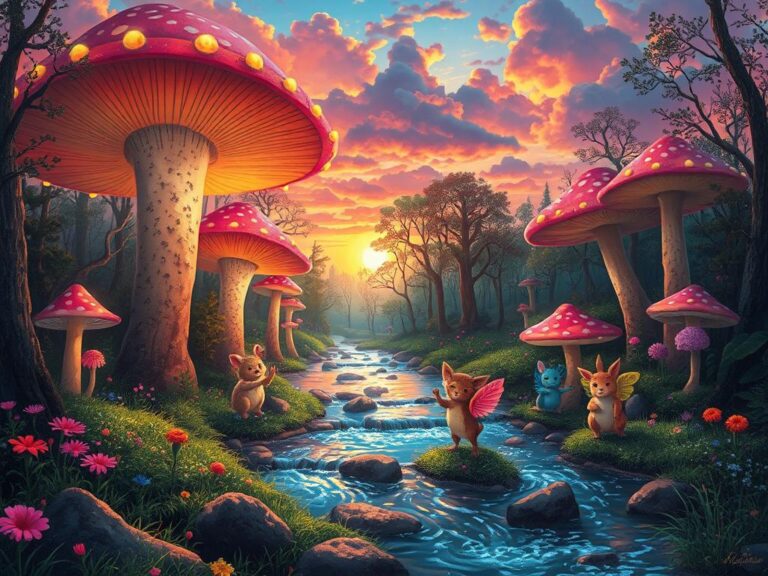Easy Jokes for First Graders: Perfect for New Jokesters!
Easy Jokes for First Graders: Perfect for New Jokesters!
Easy jokes for first graders are the perfect way to bring laughter and joy into the lives of young children.
Learning to tell jokes is not only fun, but it also helps develop language skills, encourages creativity, and fosters social interactions among peers.
In this article, we will explore a variety of easy jokes that are perfect for first graders, making them great for new jokesters. We will delve into how humor can benefit children, share a collection of 100 easy jokes, and offer tips for sharing jokes with friends and family.
The Importance of Humor for Children
Humor plays a critical role in the emotional and cognitive development of children.
Research has shown that laughter can alleviate stress and anxiety, boost mood, and enhance overall well-being.
For first graders, sharing jokes provides an opportunity to connect with peers, contributing to their social skills and emotional understanding.
Additionally, humor encourages critical thinking as children learn to create, understand, and appreciate different types of jokes.
As Dr. John Medina, a developmental molecular biologist, states, “Laughter is a key to effective learning.”
Thus, introducing easy jokes to first graders not only entertains them but also supports their broader development.
100 Easy Jokes for First Graders
Below is a collection of 100 easy jokes that first graders can tell to friends and family.
| Joke | Punchline |
|---|---|
| What do you call a bear with no teeth? | A gummy bear! |
| Why did the cookie go to the hospital? | Because it felt crummy! |
| What do cows like to read? | Moo-sic magazines! |
| Why did the banana go to the doctor? | Because it wasn’t peeling very well! |
| What do you get when you cross a snowman and a vampire? | Frostbite! |
| Why can’t you give Elsa a balloon? | Because she will let it go! |
| How does a penguin build its house? | Igloos it together! |
| Why was the math book sad? | Because it had too many problems! |
| What do you call an alligator in a vest? | An in-vest-igator! |
| Why don’t skeletons fight each other? | They don’t have the guts! |
| What did one wall say to the other wall? | I’ll meet you at the corner! |
| Why was the computer cold? | Because it left its Windows open! |
| What do you call a sleeping bull? | A bulldozer! |
| Why did the music teacher go to jail? | Because she got caught with too many sharp notes! |
| What do you get when you cross a duck with a firework? | A firequack! |
| Why did the teddy bear say no to dessert? | Because it was stuffed! |
| What do you call a fish wearing a bowtie? | Sofishticated! |
| Why did the teacher wear sunglasses? | Because her students were so bright! |
| What kind of tree fits in your hand? | A palm tree! |
| Why did the golfer bring two pairs of pants? | In case he got a hole in one! |
| How do you catch a squirrel? | Climb a tree and act like a nut! |
| Why did the chicken join a band? | Because it had the drumsticks! |
| What does a cloud wear under his raincoat? | Thunderwear! |
| Why did the student eat his homework? | Because the teacher told him it was a piece of cake! |
| What’s brown and sticky? | A stick! |
| What do you call a pig that knows karate? | A pork chop! |
| How does a scientist freshen her breath? | With experi-mints! |
| Why did the picture go to jail? | Because it was framed! |
| What do you call cheese that isn’t yours? | Nacho cheese! |
| What kind of shoes do ninjas wear? | Sneakers! |
| What do you call a dinosaur that is sleeping? | A dino-snore! |
| Why did the bicycle fall over? | Because it was two-tired! |
| What do you call a bear that’s stuck in the rain? | A drizzly bear! |
| Why did the hipster burn his tongue? | Because he sipped his coffee before it was cool! |
| What did the big flower say to the little flower? | “You’re a bud!” |
| Why did the skeleton go to the party alone? | Because he had no body to go with him! |
| What did one snowman say to the other snowman? | “Do you smell carrots?” |
| How do you organize a space party? | You planet! |
| What do you call a dog that can do magic? | A labracadabrador! |
| What did the ocean say to the beach? | Nothing, it just waved! |
| Why did the banana go out with the prune? | Because it couldn’t find a date! |
| Why do seagulls fly over the ocean? | Because if they flew over the bay, they’d be bagels! |
| How do you make a tissue dance? | Put a little boogie in it! |
| What do you get when you cross an elephant and a rhinoceros? | Elephino! |
| What did the left eye say to the right eye? | Between you and me, something smells! |
| Why couldn’t the leopard play hide and seek? | Because he was always spotted! |
| What’s the best way to watch a fly fishing tournament? | Live stream! |
| Why did the farmer win an award? | Because he was outstanding in his field! |
| What kind of button won’t unbutton? | A belly button! |
| What did the zero say to the eight? | Nice belt! |
| What has ears but cannot hear? | A cornfield! |
| Why was the broom late? | Because it swept in! |
| What’s orange and sounds like a parrot? | A carrot! |
| Why did the computer go to the doctor? | Because it had a virus! |
| What did the cupcake say to the icing? | “You complete me!” |
| Why do bees have sticky hair? | Because they always use honeycombs! |
| What kind of music do mummies listen to? | Wrap music! |
| Why couldn’t the pony sing a lullaby? | Because it was a little hoarse! |
| What did the tree say to the dog? | “Bark!” |
| How do you know the ocean is friendly? | It waves! |
| What did the janitor say when he jumped out of the closet? | “Supplies!” |
| Why are frogs so happy? | They eat whatever bugs them! |
| What kind of fish goes well with a piano? | A tuna fish! |
| What did one tooth say to the other? | “You’re a real plaque to me!” |
| Why did the orange stop? | It ran out of juice! |
| What did the rubber band say to the paper clip? | “I’m so attracted to you!” |
| How do cows stay up to date with current events? | They read the moos-paper! |
| Why did the scarecrow win an award? | Because he was outstanding in his field! |
| What do you call a dog that’s a magician? | A labracadabrador! |
| Why did the math teacher go to the beach? | Because she needed a tan-gent! |
| What did the fish say when it hit the wall? | Dam! |
| How do you make a lemon drop? | Just let it fall! |
| What has wheels and flies? | A garbage truck! |
| Why did the tomato turn red? | Because it saw the salad dressing! |
| What do you call a cat that gets caught by the police? | A purr-petrator! |
| What is a computer’s favorite snack? | Microchips! |
| Why did the coffee file a police report? | It got mugged! |
| What do you get when you cross a snowman and a vampire? | Frostbite! |
| How does a cat like its beans? | Purrr-colada! |
| Why was the broom late? | It swept the wrong way! |
| Why do cows wear bells? | Because their horns don’t work! |
| What do you call an alligator in a vest? | An in-vest-igator! |
| Why did the chicken go to the séance? | To talk to the other side! |
| How does a scientist freshen her breath? | With experi-mints! |
| Why was the math book sad? | Because it had too many problems! |
| Why did the cookie cry? | Because its mother was a wafer (away for) so long! |
| How do trees access the internet? | They log on! |
| What do you call a sleeping bull? | A bulldozer! |
| Why did the teddy bear say no to dessert? | Because it was already stuffed! |
| What do you call a dinosaur that is sleeping? | A dino-snore! |
| Why did the boy bring a ladder to school? | Because he wanted to go to high school! |
| How do you organize a space party? | You planet! |
| What do you call an alligator wearing a vest? | An investigator! |
| Why was the belt arrested? | For holding up a pair of pants! |
| Why did the computer keep freezing? | It left its Windows open! |
| How do frogs like their eggs? | Unfertilized! |
| What do you call a deer with no eyes? | No-eye deer! |
| Why don’t scientists trust atoms? | Because they make up everything! |
| What is a ghost’s favorite dessert? | I-scream! |
| Why did the pirate go to school? | To improve his “arrrticulation!” |
How to Share Jokes with Young Children
Sharing jokes with first graders can be a delightful experience that helps nurture their sense of humor.
Here are some tips for introducing humor to young children:
- Keep it Simple: Choose jokes that are easy to understand and age-appropriate.
- Create a Fun Environment: Make joke-telling a fun family or classroom activity, encouraging children to participate.
- Encourage Creativity: Allow children to come up with their own jokes, developing their creativity and sense of humor.
- Use Props: Visual aids or props can help make jokes more engaging and memorable.
The Benefits of Telling Jokes
Humor is more than just entertainment; it can have numerous benefits for children’s mental and emotional development.
Here are some key advantages of telling jokes:
- Enhances Language Skills: Telling jokes helps children learn new vocabulary and improve their language articulation.
- Cultivates Social Skills: Sharing jokes fosters connection and camaraderie among peers.
- Boosts Confidence: Successfully telling a joke boosts a child’s self-esteem and encourages them to express themselves.
- Stimulates Critical Thinking: Understanding punchlines requires cognitive processes, contributing to critical thinking skills.
Frequently Asked Questions (FAQ)
What age is appropriate for children to start telling jokes?
Children as young as four or five can start enjoying and telling simple jokes that feature wordplay or puns.
However, first graders, typically around six to seven years old, are at the prime age for beginner jokesters.
How can I encourage my child to understand humor?
Encourage your child to identify funny moments in everyday life, engage in playful banter, and respond with humor to situations.
Reading funny stories and sharing jokes daily can also help nurture their affinity for humor.
Are there any benefits to telling jokes in a classroom setting?
Absolutely! Telling jokes in a classroom can create a positive and inclusive environment, aiding in social-emotional learning and enhancing comfort among students.
Additionally, humor can be a great way to capture students’ attention during lessons.
How do jokes aid in developing language skills?
Jokes often rely on wordplay, puns, and rhymes, allowing children to experiment with language and expand their vocabularies.
As they learn and understand jokes, they also learn the nuances of language, syntax, and rhythm.
Conclusion
Easy jokes for first graders represent much more than mere humor.
They provide a platform for cognitive and social development, foster creativity, and instill confidence in young children.
By sharing jokes, children learn valuable lessons about language, social interaction, and the fantastic power of laughter.
So go ahead; share these 100 easy jokes with the new jokester in your life, and enjoy the laughter that follows!
Take a moment to reflect on your favorite moments shared through humor, and don’t hesitate to share your thoughts or favorite jokes in the comments below.







